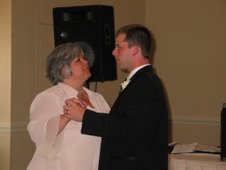"Quick-loving hearts, I thought, may quickly loathe;
And, looking on myself, I seemed not one
For such man's love! -- more like an out-of-tune
Worn viol, a good singer would be wroth
To spoil his song with, and which, snatched in haste,
Is laid down at the first ill-sounding notes.
I did not wrong myself so, but I placed
A wrong on thee. For perfect strains may float
'Neath master-hands, from instruments defaced, - -
And great souls, at one stroke, may do and doat."
In this 32nd stanza from Sonnets from the Portugese, Barrett Browning tells of her fears that this relationship with Robert Browning will not last. She also addresses her feelings of insecurity. She compares herself to a musical instrument that is out of tune and is quickly tossed aside once its imperfection is realized. This lack of self confidence may be tied to her physical health. As a virtual invalid it seems logical that she might see herself as unworthy of the love and attention being given to her by Browning.
In the second portion of this stanza she doesn't seem to change her opinion of her worthiness of Browning's love, but rather she says that she wronged him for not realizing that he would love her as she is. Again she uses the analogy of the out of tune musical instrument and compares Browning to a master musician who can play beautiful music even with a faulty instrument.
In the sections given in our text, you can almost feel Barrett Browning gaining strength and momentum from her new found love of Browning. At the beginning she speaks of feeling that she was being held by death, as if she is resigned to her death probably due to her physical ailments. It is interesting that comes back to this point in the final stanza when she says " . . and, if God choose, I shall but love thee better after death." Her thoughts of death don't hold the same dread or sense of resignation as at the beginning of the poem. Now she has loved, and she is hopeful that her love will continue even after death.
I found her words inspiring...in the sense that we each should love passionately and without fear.
Sunday, June 10, 2007
Subscribe to:
Post Comments (Atom)

3 comments:
It’s no wonder that Elizabeth was insecure. Her strict, over-protective father kept her virtually imprisoned in his house. Elizabeth was bed-ridden for many years and developed a dependency on the morphine that she was repeatedly prescribed. I’m sure this kept her idle and prevented any physical activity that might have improved her health. After her mother died when she was in her early twenties, she became more withdrawn and her father wasn’t a great purveyor of confidence. Her doctors recommended a change of climate for her health, but her father would not let her go. She suffered greatly when her brother died and became almost a recluse. With so much pain in her life, she was understandably cautious about Robert.
She was nearly 40 when she began corresponding with Robert. He was only 33 and she could not understand why he would be interested in her. Her father was opposed to the relationship, and didn’t want any of his children to marry. This leads me to believe that the relationship between her father and mother was dysfunctional as well, giving her more reason to be skeptical about love. Robert and Elizabeth had to correspond in secret so her father wouldn’t find out. She was 40! Had it not been for Robert, she probably would have died in her room. After she and Robert eloped, they moved to Italy and with the help of the warm climate and Robert's care, she regained her strength. In her last letter to Robert before they eloped, she wrote “I begin to think that none are so bold as the timid, when they are fairly roused” (pg. 529).
Wanda,
Very nice exploration and clode reading of this one sonnet from Browning's sequence. Good selection of and explication of examples from the text, too. As usual, a fine and sensitive reading of the text--I am glad to see how much you are engaging with the poetry.
Good insight on the poem about Elizabeth and Robert.
Post a Comment